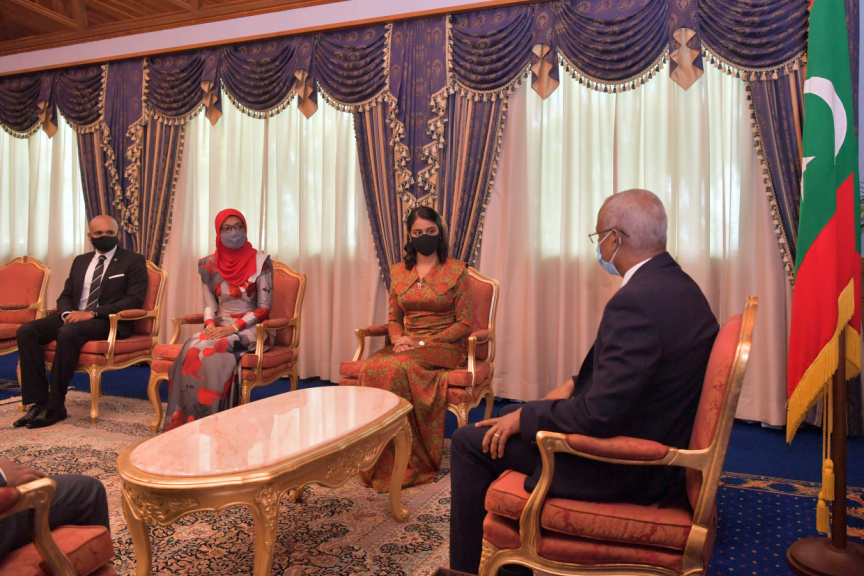Malé, Maldives – Human Rights Commission of Maldives (HRCM) has recommended amending the bill to criminalize hate crimes to ensure that the right to freedom of expression is protected.
The statement by HRCM states that their recommended amendments take into account, the international human rights treaties signed by Maldives including the Unite Nations Universal Declaration of Human Rights (1948).
The HRCM ammendments to the bill to criminalize hate crimes refer to Article 27, 28 and 29 of the Maldives Constitution and Article 19 of the Universal Declaration of Human Rights.
The Articles 27, 28 and 29 of the Maldives Constitution protects the freedom of expression, media and acquiring/imparting knowledge.
Everyone has the right to freedom of opinion and expression; this right includes freedom to hold opinions without interference and to seek, receive and impart information and ideas through any media and regardless of frontiers.
Article 19, Universal Declaration of Human Rights
The HRCM recommendations also state that the amendment to criminalizing hate crimes against depending on nationality, religion, or religion must adhere to Article 20 of The International Covenant on Civil and Political Rights (ICCPR), the Camden Principles and the United Nations Strategy and Plans of Action on Hate Speech. The commissions also call to define the limits of the hate crimes as per the Rabat Plan of Action and Six Part Threshold Test.
The bill was sponsored by MP for Thulhaadhoo Constituency, Hisaan Hussain on behalf of the government. It was accepted with 38 votes, while 17 members were against it. The bill proposes amendments to the Maldives Penal Code (Law No. 6/2014) proposed by the government to stop hatred by making hate speech and hate crimes an offence.
The proposed amendments in the bill which are being criticized by the public and several Islamic scholars.
The amendment also proposed that physical crimes against a person after labelling them as secular or anti-Muslim or being an accomplice to such acts are also a crime. This includes using a person’s political and religious beliefs as a motive for violence.
The hate crime amendment includes supporting, threatening, kidnapping, attacking a person based on their race, nationality, and skin colour.





